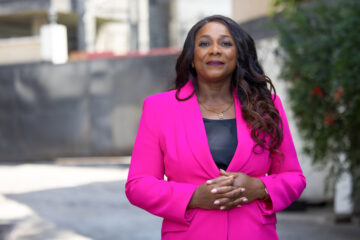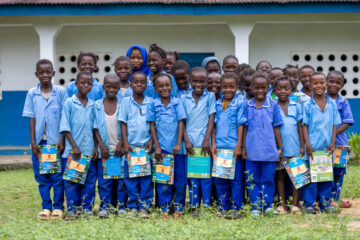James Samba: Building Sierra Leone’s First Electric Vehicle
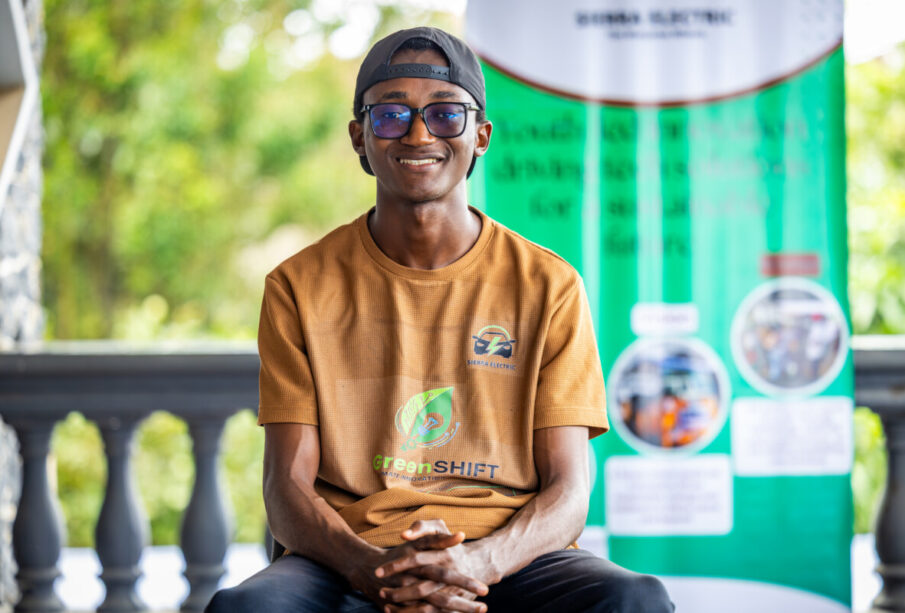
James Samba 25, grew up in Pujehun Town in southern Sierra Leone, the youngest in a family of eleven. As a child, he was known for curiosity and creativity. He often built his own toys from scraps or dismantled radios just to see what was inside. While he studied arts in secondary school at Christ the King College, his true passion was technology and innovation. That passion eventually led him to study software engineering and multimedia at Limkokwing University, where he is now in his final year.
“Even when I was studying arts in high school, I knew my passion was in technology and creativity,” he said. “I initially thought I would study law or journalism, but I later realized I was born to innovate.”
Despite starting with little, Samba always believed he could create something big. His first invention was a small radio transmitter in his grandmother’s house, built from discarded electronics. This experience gave him the confidence that Sierra Leoneans could also design and build technologies, rather than relying only on imported products.
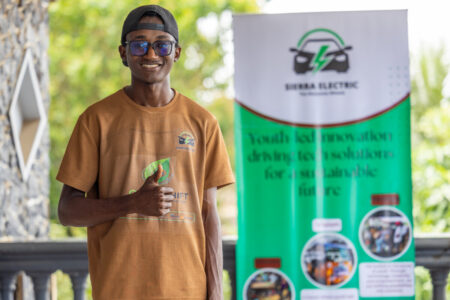
James Samba, Founder and CRO of Sierra Electric Inc
Samba’s motivation came from personal experience. His late uncle, a man living with a disability, often had to cling to motorbikes or vehicles for transportation. Constant exposure to harmful fumes worsened his health. Witnessing this struggle inspired Samba to focus on cleaner, safer technologies that could serve everyone, including people with disabilities.
“My uncle was a person living with a disability,” he explained. “He had no access to transportation, so he often had to hang on to motorbikes or vehicles to get around. I later realized that the fumes from those vehicles were affecting his health.” Said samba
This was the beginning of Sierra Electric Technologies, the company Samba founded and now leads as CEO.
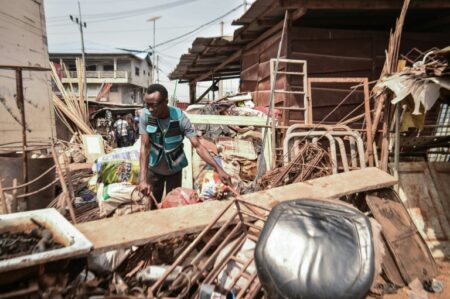
James Samba in a scrap yard
The Birth of Sierra Leone’s First Electric Vehicle
In 2022, Sierra Electric built Sierra Leone’s first ever locally made electric vehicle, a 10-seater shuttle that also includes a ramp for wheelchair users. The journey started with support from the UNDP Accelerator Lab in 2019, which trained young innovators in entrepreneurship and product development. With additional support from partners such as the Freetown City Council and Bloomberg Philanthropies, Samba and his team began turning ideas into working prototypes.
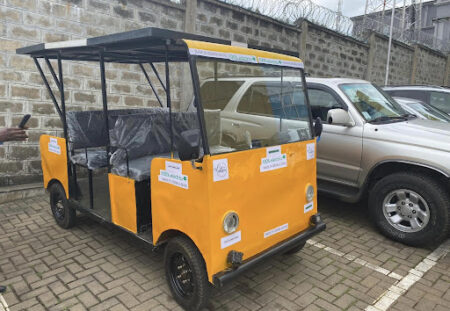
James Samba’s 10 seater electric vehicle
The electric vehicle quickly became a symbol of innovation, proving that young Sierra Leoneans could build advanced technologies with mostly local materials. The launch drew excitement both in Sierra Leone and beyond. For Samba, it was a proud moment especially because it happened on his father’s birthday, November 12.
“When I saw the car move, I couldn’t hold back my tears,” James said. “It was my proudest moment, not just because we made history, but because it happened on my father’s birthday.
The journey has not been easy. Sierra Electric faces many challenges, including limited access to financing, lack of innovation funds, and competition from imported technologies. Some companies even attempted to replicate Samba’s work and resell it in Sierra Leone, undermining his team’s efforts.
Still, Samba remains determined.
“Even if others try to copy us, we believe in the power of Sierra Leonean youth to create solutions for our own problems,” he said.
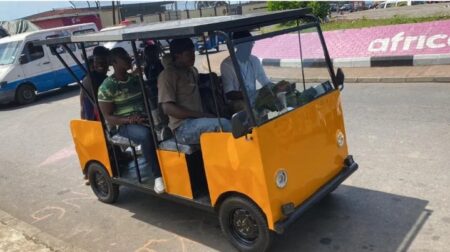
James Samba cruising his 10 seater electric vehicle
Expanding Beyond Vehicles
Today, Sierra Electric is more than just about cars. The company is working on renewable energy solutions such as clean power systems, smart farming technologies, and waste management innovations. Through its Green Shift Project, Sierra Electric is training young innovators and helping them develop their ideas into real solutions. In the first call for applications, nearly 300 young people applied in just two days, showing the hunger for innovation among Sierra Leonean youth.
Looking ahead, Samba envisions Sierra Electric becoming a hub for green technology in West Africa. He hopes to train over 1,000 young innovators, employ hundreds of people, and one day compete with global manufacturers like China.
“My advice to young innovators is simple,” Samba said. “Start with what you have. I began with scraps from my grandmother’s radio. You don’t need money to start, you need creativity, persistence, and belief in yourself.”

